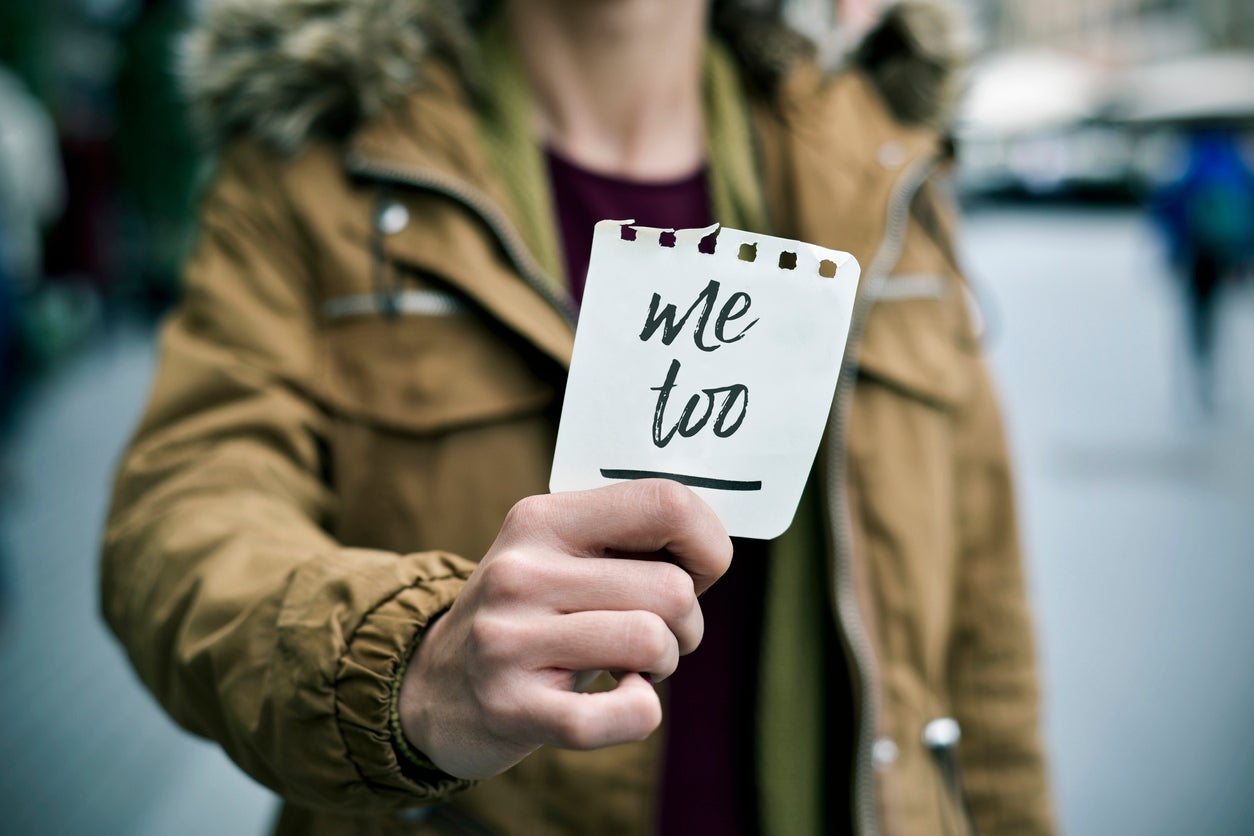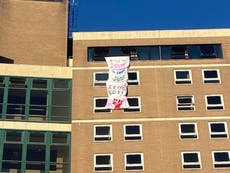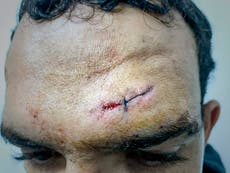The Independent's journalism is supported by our readers. When you purchase through links on our site, we may earn commission.
‘Cheap drink and wealthy students make for a toxic cocktail’ – the public scandal of sexual abuse in universities
A new book suggests there could be as many as 100,000 cases of sexual harassment and abuse at English and Welsh universities every year – when will these institutions start to take this seriously?

Your support helps us to tell the story
From reproductive rights to climate change to Big Tech, The Independent is on the ground when the story is developing. Whether it's investigating the financials of Elon Musk's pro-Trump PAC or producing our latest documentary, 'The A Word', which shines a light on the American women fighting for reproductive rights, we know how important it is to parse out the facts from the messaging.
At such a critical moment in US history, we need reporters on the ground. Your donation allows us to keep sending journalists to speak to both sides of the story.
The Independent is trusted by Americans across the entire political spectrum. And unlike many other quality news outlets, we choose not to lock Americans out of our reporting and analysis with paywalls. We believe quality journalism should be available to everyone, paid for by those who can afford it.
Your support makes all the difference.Three years ago, we were in a London university with the local trade union rep, discussing how universities were changing. She then took a phone call, looked grim, made her excuses, and left. Half an hour later she returned and explained that one of her members had been sexually assaulted. We were shocked. “Is sexual abuse common in the university?” we asked. She nodded. “It is rife.”
In our new book, Unsafe Spaces: Ending Sexual Abuse in Universities, we estimate that there are at least 50,000 cases of sexual harassment and abuse at English and Welsh universities every year. We also suggest that the number might be much higher, perhaps even 100,000. No one knows for sure.
We are amazed that British universities have never conducted a proper survey to establish the extent and nature of the problem. Universities only know about the victims who report their abuse, but this is utterly misleading because sexual abuse is massively under-reported. We interviewed 60 victims and few of them had told their universities. In a terrible reversal of blame, victims often feel that they are in some way responsible. That guilt is part of the miserable legacy of abuse. Suspicion replaces trust, confidence is undermined and intimate relationships become more difficult.
Without adequate information, university policies on sexual abuse are based on guesswork. The approach is amateurish. Two-thirds of universities do not employ a specialist to guide the development of their policies and to advise how best to support victims. Instead of using well-trained professionals, many universities rely on volunteers – who are well meaning but sometimes out of their depth.
A victim of abuse deserves understanding and continued support. Vera Baird, the victims commissioner, told us that the way a victim is treated can be as important to their peace of mind as the outcome of their case.
We made a Freedom of Information request to all 102 universities in England and Wales, asking for the procedures used in cases of sexual abuse. Most are written in chilly legalese, designed to protect the university from legal action, rather than to reassure a fearful victim.
Some clauses made our eyes roll with astonishment. We found procedures which recommend that the victim approach the alleged perpetrator to try to achieve an agreed resolution. This might work with a complaint about leaving a mess in a shared kitchen, but how can such a hideous suggestion appear in a procedure for handling complaints of sexual abuse?
The effect on most victims is devastating and long lasting. “It was all a living nightmare,” said one woman we interviewed. “It made me distrustful of male friends for a long time,” another young victim told us.
The story has many strands and most are unedifying. We were given many examples of a flawed university culture. Disgraceful incidents take place after sports events – in particular, rugby matches – fuelled by large quantities of alcohol. The police in one university town said: “Cheap drink and wealthy students make for a toxic cocktail.” A female student said to us: “It’s impossible to go on a night out here without being groped.”
Professor Alison Phipps of Sussex University describes this behaviour as “lad culture”, which often dominates university social life. We’ve heard of rugby teams at university wearing T-shirts saying “campus rapists” and having “f**k a fresher” races. The term “seal clubbing” is used to describe attacks on first-year female students.
Easy access and exposure to pornography plays a part. As one young male undergraduate told us: “Porn viewing definitely results in a lowering of standards.”
We were surprised that few universities made any serious attempt to discourage “laddish” behaviour. One explanation for the relaxed attitude is that universities are desperately short of funds, so increasing student numbers may take precedence over student welfare.
We were shocked by the number of stories we were told about university teachers – sometimes eminent professors – who some say deliberately target young female students to seduce. It is easy to understand how an 18-year-old, living away from home for the first time, could be flattered by the interest of a charismatic older lecturer who singles her out for special attention.
Some of these predators are well known in the university, even given nicknames like Dirty Dick, Handy Andy and Lester the Molester. If the predators are recognised experts in their field, the university is often loth to lose the prestige (and the cash) they bring, so a blind eye is turned to their abusive behaviour. Often, if a case is followed up formally, it is the student and not the member of staff who is moved.
These shabby and damaging features of university life can continue because they are largely concealed from public view. But these are not harmless eccentricities. At risk are not only the reputation of British universities but also – and more seriously – the life chances of many young people. This public scandal should be addressed.
The good news is that many people in the university community already know what needs to be done. We name 10 universities that have developed policies which, if applied across the sector, could make every university a safer and happier place.
Universities need to get hold of the facts. How many cases of sexual abuse are there? Where do they occur and which groups are most vulnerable? A detailed survey is essential.
Vice-chancellors should abandon what often seems like a lofty detachment and get to grips with the problem. An inspirational student union rep in Leicester persuaded the vice-chancellor to meet students who had been sexually assaulted. As we found, hearing the terrible stories from the victims produces a strong determination to end sexual abuse. It worked in Leicester and should be repeated throughout higher education.
A distinct procedure should be introduced to deal with sexual abuse cases. It must be humane, rapid and recognise the distress of victims.
“Lad culture” should be confronted and banished in favour of the doctrine of mutual respect.
We are also deeply concerned that only six out of 102 universities have decreed that academics must not have sex with the students they teach. The difference in power between teachers and their students is so large that such affairs are, by their nature, exploitative. They also undermine the principles of trust and professionalism that all universities claim to live by.
Each of these reforms is being applied somewhere in higher education. This civilised plan does not need to be invented. It just needs to be applied in every university.
Unsafe Spaces: Ending Sexual Abuse in Universities by Eva Tutchell and John Edmonds is out now (Emerald Publishing, £24.99)




Join our commenting forum
Join thought-provoking conversations, follow other Independent readers and see their replies
Comments